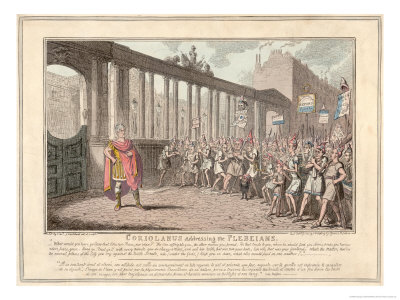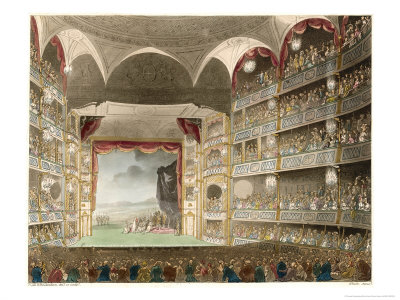I searched online through my University's library (
lib.byu.edu) and found a couple of teaching journals, so I went to the library to check them out because they were *gasp* only in print. I discovered some articles I really liked in a couple journals- one that I had searched and some that were surrounding that journal. As I continued in my research I discovered a direction--technology and teaching at (I think) a University level.
1) An, Yun-Jo, and Charles Reigeluth. "Creating
Technology-Enhanced, Learner-Centered Classrooms: K-12 Teachers' Beliefs,
Perceptions, Barriers, and Support Needs."Journal of Digital Learning
in Teacher Education 28.2
(Winter 2011-12): 54-62. Print. Online: JDLTE Abstracts
This article talks about the current realities of technology in education, and looks forward to what needs to change and be overcome. It really advocates the need of technology in the modern classroom and expresses how best to support this change.
I found this journal through browsing the shelves where I had found other journals concerning the same topic- teaching in the modern age.
This book goes through the standard methods and then suggests technological alternatives, after including the 'potential pitfalls.' I enjoy the structure of this book because it gives teachers obvious ways to adapt some technological resources that would smoothly fit into their classroom by replacing what they are already.
I found this book in a general library book search for books incorporating technology and teaching (not to be mis-construed as teaching technology which reminded me to be careful in my specific wording).
3) Petrides, Lisa Ann. Case Studies on Information
Technology in Higher Education: Implications for Policy and Practice.
Hershey: Idea Group, 2000. Print. Online: Case Studies Book
I really like this book because it has real life examples of implementing technology in the classroom. It is also more geared towards a University classroom, rather than K-12. I believe that the implications of technology need in the classroom is as real for professors as it is for high school educators- if not stronger because professors have the internet access and student freedom to use technology easier. This book is a little bit dated (2000) but I feel like the argument is actually more valid now than it was then. The need for technological integration has increased rather than decreased with time.
I found this book while looking at the books next to #2. I often find the books around the book I originally found to be more useful than the original.
I actually stumbled upon the broad topic of technology and social media in the classroom because in the beginning of my search I found articles that talked strongly about using Facebook and Twitter in teaching. I really connected with this because I have had professors use both of these social media pathways in their classroom.
4) Fletcher, Luke. "Can Facebook Improve
Students' Exam Writing?" Modern
English Teacher21.1 (Jan 2012): 42-45. Print. Online: MET: Modern English Teacher
This article is about a teacher- Luke Fletcher- in Europe who used facebook in his classroom. He points out some of the major advantages and disadvantages of using this medium. As well as, describing the specific ways he used facebook with his students.
This was actually the first journal I came across and the one I am most excited about. I am thrilled because they are a current journal- this article just appeared in their issue last month- and they incorporate a section specifically for technology in the classroom.
5) Hart, Juliet E., and Trish Steinbrecher.
"OMG! Exploring and Learning from Teachers' Personal and Professional Uses
of Facebook." Action in
Teacher Education 33.4
(Winter 2011): 320-28. Print. Online: Information on Action in Teacher Education
This was an extensive article about how facebook is used/ can be used professionally and personally. They included some specific examples (that were quite extensive). I found the general ideas in the article helpful, but I am not sure I liked their example use.
I found this journal by looking around on the shelf by the other helpful journals I found. I actually almost didn't go back and look at this one, but I am glad I continued exploring.
6) Jenner, Stephen. "Using Twitter in
Teaching." Modern English
Teacher 19.3 (July 2010):
39-42. Print. Online: MET: Modern English Teacher
This article evaluates Twitter as a teaching tool. It evaluates the short messages/ character capacity of Twitter which explains why twitter and not another social media.
I found this article after searching through a few of the older editions of MET. I was browsing the indexes of the last issue for different years.
After I found quite a few sources that gave me more of a direction for my general paper topic I researched in the direction of a Shakespeare play. I just changed my Shakespeare play focus from Macbeth to Coriolanus Wednesday morning, and to be frank that could easily change next week. However, I found a few criticism sources on Coriolanus to see what I could find and consume concerning this Shakespeare play. (I have not settled on a particular edition or audiobook to assist in me consuming the original text yet).
I have only had the chance to skim this book, but it looks like critics applying Coriolanus's time and day to the 'modern' day. This book is a bit dated, but Shakespeare criticism has value for a longer period of time than other books. I think this will be very useful in helping me connect my research paper topic to a deep textual analysis of a Shakespeare play.
I found this play by researching an edition of Coriolanus by Shakespeare. I looked around the different versions and the popular criticism concerning the play is right next to the original texts.
This is a very general bibliography of several topics surrounding the play Coriolanus. It is a bit exhaustive and dated, but I feel like I will be able to pick out a few articles and books when I get a greater focus to my research paper and Shakespeare connection.
I found this play by researching the original text of Coriolanus. It was a book I ran into while browsing the nearby books and shelves surrounding the original text and other criticisms.

















